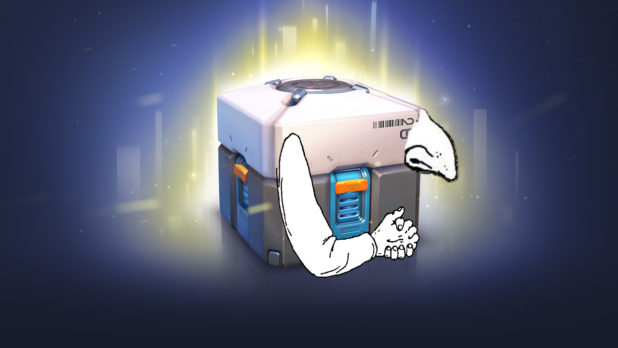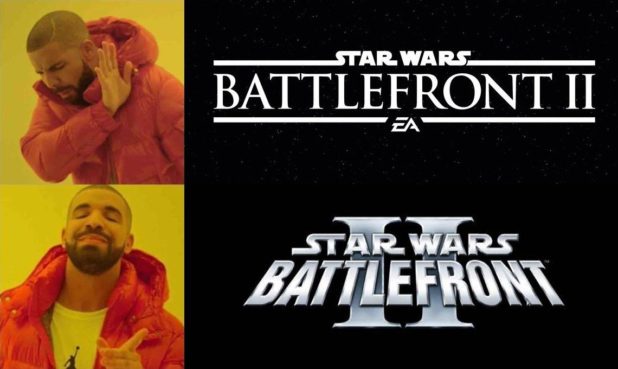Adrian Sol
Daily Stormer
November 24, 2017
Lootboxes: the vidya Jew.
For the past few years, video game companies have been scheming to find new ways to make money. This all started, for the most part, in the mobile market, where games are usually given away for free or sold at a very low price. In order to fund the development costs, these developers would get the players to buy crap in-game in order to make it more enjoyable, or to remove annoyances that were put in the game specifically for this purpose.
But then, the big publishers started to put in this crap in their big AAA titles which they already charged people 60$ for – even as they were already making plenty of profit.
Worst of all, all these “micro transaction” systems are scientifically designed to use the human mind’s addiction pathways in order to get people to spend as much money as possible on useless in-game crap. So they’re now giving out “random” rewards in exchange for real money, turning the whole thing into a ridiculous gambling scheme targeted at children and compulsive people.
Sick.
While gamers have been complaining about this for a while, only with the release of EA’s “Star Wars: Battleground 2” has the world started to take notice.
Australian gambling regulators are considering whether pay-to-win “loot boxes” in video games constitute gambling and may be in breach of state laws.
The recent release of Star Wars Battlefront 2, one of the year’s gaming blockbusters, has renewed a global debate about the convergence of gambling mechanisms and video games.
Authorities in Belgium and a legislator in the United States have both expressed concern about Battlefront 2’s reliance on loot boxes, a randomised system of reward that can help a player progress through the game.
The game’s progression system relies significantly on the boxes, which can be purchased using real money to give the player equipment and “star cards” with varying levels of effectiveness for their character.
A character may, for example, get lucky and unlock an ability to cause significantly more damage. Or a player might pay and unlock relatively weak upgrades that do little to advance their character.
The Belgian gaming commission has launched an investigation into loot boxes and in-game purchases.
In the United States, a Hawaiian legislator, Chris Lee, criticised the game, describing it as a “Star Wars-themed online casino designed to lure kids into spending money”.
The backlash prompted the game’s publisher, Electronic Arts, to remove in-game purchases from Battlefront 2 on the eve of its full release.
The concerns about loot boxes in video games are not new.
But Battlefront 2’s release has provoked heated discussion within the gaming community, and appears to have been the last straw for gamers angry at developers’ increasing use of in-game purchases to milk money from users.
This week, email correspondence between an Australian university student and a strategic analyst with the Victorian commission for gambling and liquor regulation (VCGLR) was posted on Reddit.
The analyst confirmed the use of loot boxes was being considered at a federal and state level, and said the use of loot boxes would constitute “gambling” under Victorian law.
When even politicians find your behavior slimy, you know you’re the scum of the earth. It’s like when a homo calls you a degenerate – definitely time to pause and reflect.
With talks underway in Europe, America and Australia to regulate this gambling nonsense, it’s likely lootboxes and other forms of crass exploitation will be banned within a few years.
It’s too bad about Star Wars Battlefront, though. The original games were actually pretty good.
Only 90s kids will understand this meme.
Our games are getting Jewed by crass commercialism, which is forcing us into more robust entertainment avenues – like Alt-Right memes.


